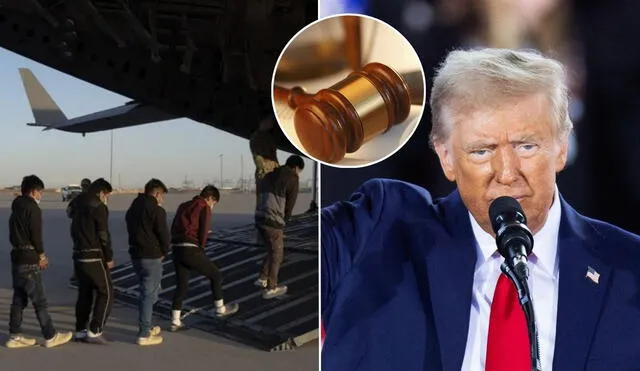Trump administration defies judge’s order, deports hundreds of migrants
The Alien Enemies Act allows an expedited removal process, which means those subject to the president's declaration would not go through the normal immigration proceedings in court, or be able to claim asylum.

In a dramatic escalation of immigration enforcement, the Trump administration has deported hundreds of migrants to El Salvador, defying a federal judge’s order to halt the removals. The move, rooted in an 18th-century wartime law, has ignited legal challenges and widespread criticism.
This controversial move underscores the tension between immigration enforcement and constitutional rights, setting the stage for a landmark legal battle. The American Civil Liberties Union (ACLU) and other advocates continue to challenge the administration’s actions. Here’s what you need to know about this unfolding story.
Judge’s order ignored: Deportations continue
On Saturday evening, U.S. District Judge James E. Boasberg issued a temporary restraining order to block the deportations. However, by the time the ruling was made, two planes carrying migrants were already in the air—one bound for El Salvador and the other for Honduras. Despite verbal instructions to turn the planes around, the deportations proceeded.
Salvadoran President Nayib Bukele, a Trump ally, confirmed the arrival of approximately 300 migrants in a now-viral social media post, quipping, “Oopsie… Too late.” The migrants are being held in El Salvador’s high-security CECOT prison, part of Bukele’s controversial crackdown on crime.
The Alien Enemies Act: A rarely used wartime law
The deportations were carried out under the Alien Enemies Act of 1798, a law invoked only three times in U.S. history—during World War I, World War II, and the War of 1812. The act grants the president extraordinary powers to detain or remove foreigners during times of war.
President Trump declared the law applicable, citing the Venezuelan gang Tren de Aragua as an “invading force.” However, critics argue the administration provided no evidence linking the deported individuals to the gang or any criminal activity.
Trump faces legal challenges and humanitarian concerns
The American Civil Liberties Union (ACLU) filed a lawsuit challenging the deportations, leading to Judge Boasberg’s temporary order. The judge emphasized the unprecedented use of the Alien Enemies Act outside a congressionally declared war, raising constitutional concerns.
Key points of contention include:
- Lack of due process: Migrants were deported without evidence or opportunity to defend themselves.
- Human rights violations: Venezuela’s government condemned the move, comparing it to “the darkest episodes in human history.”
- Legal precedent: The case could set a dangerous precedent for future immigration enforcement.
Judge Boasberg has scheduled a hearing for Friday, March 21, to further examine the legality of the deportations. For now, the temporary restraining order remains in effect, preventing additional removals for up to 14 days.












